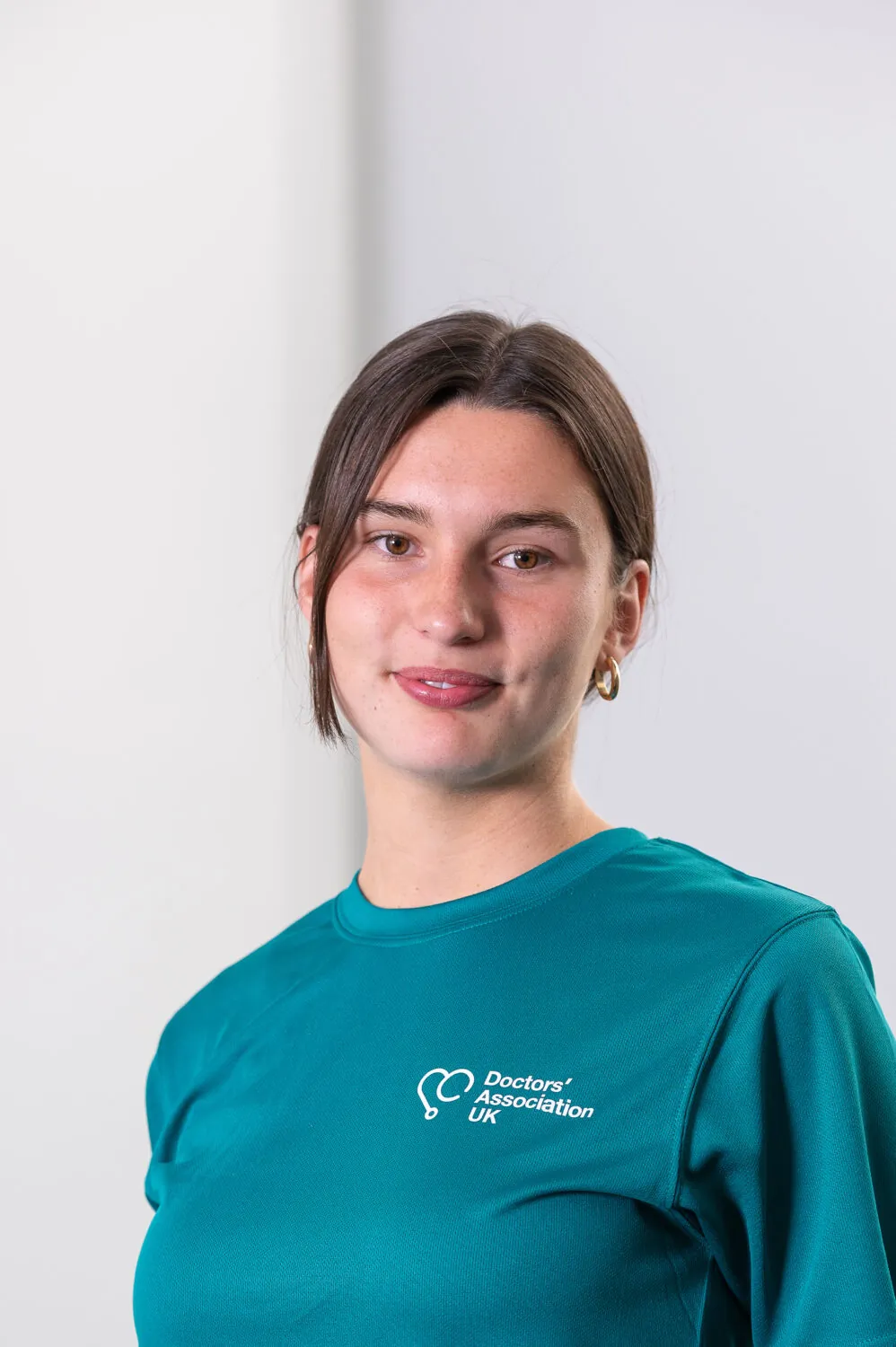
Calling NHS staff ‘heroes’ reflected the personal risk and sacrifices they took on at the start of the COVID-19 pandemic – but the label must not undermine the case for fair pay and better working conditions, warns the Doctors’ Association UK’s Dr Lizzie Toberty.
After a shift at a vaccine clinic I received a little badge, styled like Superman’s logo but emblazoned with NHS. I’d look at it as I trawled through prescription requests or chatted to patients about laxatives, cholesterol levels and other glamorous topics.
It got me thinking: am I, like everyone else working in the NHS in the middle of a pandemic, really a hero? Am I truly doing heroic things, or just the things I’m trained and paid to do?
When I was about 10, I’d get up every Saturday morning and watch the New Adventures of Superman. I loved the drama, action and romance. The way Lois never worked out Clark was really Superman, just because he was wearing a pair of glasses. To my childish brain this was 100% believable.
NHS heroes
The thing is, I can’t remember the episodes where Superman complained that his PPE wasn’t good enough or in keeping with the evidence. Neither can I remember the one where he cried in a cupboard because the pressure he was under was too much. Equally did he ever ask for a pay rise, and consider strike action when it wasn’t forthcoming?
No he didn’t. He carried on, heading into flaming building after flaming building. Never tiring, always there, never thinking of himself. Subtly returning to his desk job when the drama was over. He kept going no matter what.
At the start of the pandemic describing NHS staff as heroes seemed right, honourable, and respectful of the sacrifice they were making. It summoned up the image of doctors and nurses rushing from cardiac arrest to cardiac arrest. Which of course some of our colleagues were doing. We were compared to an army on the frontline.
This wasn’t a war of combat, but a war of a different kind, and the public needed a force, an army to get behind. But I don’t think the images of heroes quite captured the paramedic having to walk into the home of a patient in an out-of-date surgical mask.
And it didn’t quite conjure up the image of a social care worker, managing patients on a dementia unit, who were unable to socially distance. Or indeed, the hospital cleaner or porter. Did they and do they feel like society’s heroes too?
It may be flattering to be called a hero, but the narrative is problematic, even damaging to NHS staff. Throughout the pandemic colleagues have been thrown into desperately difficult situations. Inadequate PPE; rationing oxygen and ITU beds; risking taking COVID-19 home to our families.
I worry that calling people heroes means they shouldn’t complain about any of this, and that to do so suggests that we might somehow be lacking
in resilience. Heroes, at least of the comic book kind, are clearheaded, energetic, unphased and never complain. They need little from others, much less their government.
But the thing is we do need something from our government. We need to be valued.
3% pay rise
It is extremely convenient for a government that has systematically underfunded the NHS for more than 10 years, to talk about heroes. Staff have seen a 30% real-terms pay cut. The 3% pay rise offered to NHS staff last week barely keeps up with inflation.
It also throws GP partners into hot water. With no extra funding allocated to general practice, then partners will face deciding between service cuts or being able to pay their salaried GPs and other staff the 3% uplift – all while seeing a drop in their own income.
The heroes narrative makes it difficult, uncomfortable and unpalatable to
ask for more, when so many of the general public are out of work. Shouldn’t NHS workers just be grateful?
But this isn’t just about money, this is about being valued. it appears that there is money if you’re looking for a private contract from the government (£37bn for Track and Trace springs to mind), but not if you’re serving your community in primary care. It’s telling of where this government’s priorities lie.
NHS pressure
I worry about the psychological toll this all takes. The level of illness, death and stress some staff have encountered is unimaginable. To simply expect people to continue indefinitely is not realistic. To furthermore be unappreciated, will surely only add to the already thousands of NHS vacancies which already exist.
I wasn’t taught any special powers. I was taught how to take a history, to examine and manage illness. To do this well and properly, I need time, a clear head, and to feel supported in my work environment.
We’re not heroes. We are human beings who sometimes do heroic things, but mostly just our jobs. However, the toll of this last year needs to be recognised financially and with better working conditions, and we shouldn’t be afraid to demand it.
- Dr Lizzie Toberty is a GP in north-east England and a member of the DAUK GP committee





